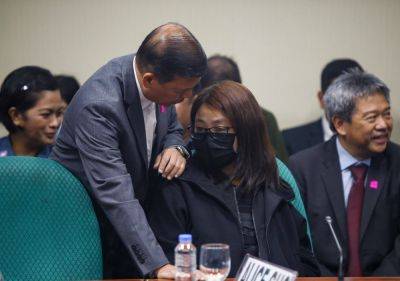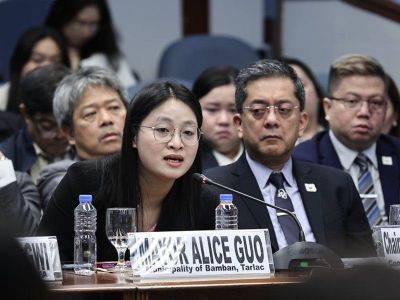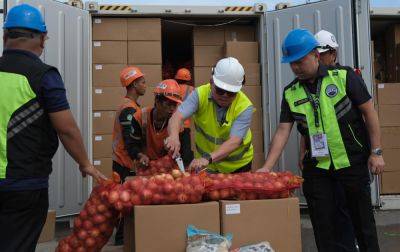Complaint filed vs 12 in onion ‘cartel’
MANILA, Philippines — The Philippine Competition Commission (PCC) has filed charges against 12 vegetable traders for engaging in anti-competitive agreements in the supply of imported onions.
If found guilty, the traders could be fined a total of P2.4 billion.
In a press conference yesterday, PCC Enforcement Office director Christian Loren delos Santos said his office filed an administrative case before the commission against onion importers and traders for violating Section 14 of the Philippine Competition Act, which prohibits agreements between competitors that restrict or reduce market competition.
Named in the Statement of Objection are Philippine Vieva Group of Companies (Phil. Vieva Group), Tian Long Corp., La Reina Fresh Vegetables & Young Indoor Plants, Yom Trading Corp., Vegetable Importers, Exporters & Vendors Association of the Philippines (VIEVA Phils.) and Golden Shine International Freight Forwarders.
Also named as individual respondents are Lilia Cruz as vice president of Phil. Vieva Group, chairperson and president of Golden Shine and chairperson of VIEVA Phils.; Eric Pabilona as board member of Phil. Vieva Group, corporate executive officer of Golden Shine and corporate secretary of Tian Long; Renato Francisco Jr. as board member of Phil. Vieva Group, president of La Reina and chairman and president of Yom Trading; Letty Baculando, board member of Phil. Vieva Group and incorporator of Golden Shine; Mark Castro Ocampo, sole proprietor of Vegefru Producing Store; and Nancy Callanta Rosal, sole proprietor of Rosal Fruit and Vegetable Trading.
Delos Santos said the traders engaged in cartel-like behavior as they divided among themselves the volume of onion allowed to be imported by assigning among themselves the sanitary and phytosanitary import clearances (SPSIC) issued by the Bureau of Plant Industry.
He said the traders also exchanged sensitive business information like the price, suppliers, customers, volume, shipping, distribution and storage.
“So, by agreeing to allocate SPSICs and divide among themselves the actual volume of imports, respondents effectively controlled more than 50 percent of the volume of onions imported into the Philippines







